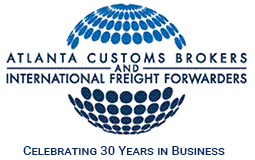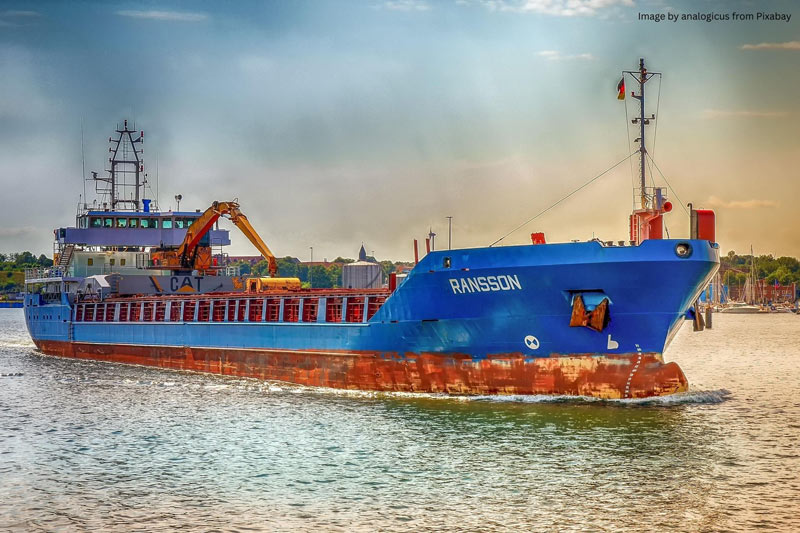Why You Need Customs Brokers When Importing Goods Into the U.S.
Did you know nearly all imported goods require a customs declaration? The global marketplace has made it easier than ever for businesses to source products from around the world, but with these opportunities come regulatory requirements. In the United States, U.S. Customs and Border Protection (CBP) processes millions of imported goods every single day. The sheer volume of imports means strict oversight—and even small mistakes in your paperwork can result in serious consequences.
A missed signature, a misclassified product, or a misunderstanding of tariff codes can trigger delays, inspections, and sometimes heavy penalties. For small and mid-sized businesses, such disruptions can not only increase costs but also damage customer relationships due to late deliveries.
Whether you’re importing raw materials for manufacturing, finished goods for retail, or specialized equipment for a project, understanding customs regulations is crucial for both compliance and timely delivery. This is true no matter the size of your operation—international trade is regulated to the same high standards for all importers.
Why Customs Brokers Are Essential
This is where customs brokers step in as a critical partner in your supply chain. A customs broker is a licensed professional—often backed by a team—who acts as an intermediary between you, the importer, and government authorities. They interpret, prepare, and submit the necessary documentation to clear your goods at the border.
Think of a customs broker as your personal guide through the maze of international trade regulations. They ensure that every step—from classifying your goods correctly to paying the right duties—is handled with precision. Without their expertise, you may find yourself navigating a complex process filled with unfamiliar legal and logistical hurdles.
What Is Customs Brokerage?
Customs brokerage is a specialized service focused on the legal and procedural aspects of importing goods. Licensed customs brokers are authorized by U.S. Customs and Border Protection to act on behalf of importers. Their responsibilities can include:
- Document Preparation and Submission – Filing entry forms, commercial invoices, packing lists, and certificates of origin.
- Duty and Tax Calculation – Determining and remitting the correct duties, tariffs, and other import taxes.
- Regulatory Compliance – Ensuring goods meet all relevant regulations, such as safety standards, labeling requirements, and import quotas.
- Communication with Authorities – Acting as the official point of contact with CBP and other federal agencies like the FDA, USDA, or EPA.
- Advisory Services – Providing guidance on how to reduce costs legally through duty drawback programs, tariff exemptions, and trade agreements.
In essence, a customs broker ensures your import process is compliant, efficient, and predictable—reducing the risk of shipment delays or costly penalties.
The Value of a Customs Broker
Partnering with a customs broker offers clear advantages for businesses engaged in international trade:
- Expert Knowledge – Customs brokers stay updated on constantly changing regulations, trade agreements, and classification rules. What’s compliant today may not be tomorrow, and they’re equipped to keep you informed.
- Time Savings – They know exactly what documentation is needed and how to submit it correctly the first time, avoiding costly resubmissions or shipment holds.
- Compliance Assurance – Brokers help prevent penalties by ensuring you meet all federal import regulations and requirements.
- Problem Resolution – If your goods are held for inspection or face a compliance dispute, your broker is equipped to communicate with CBP and expedite resolution.
- Cost Efficiency – By advising on duty minimization strategies and leveraging trade programs, brokers can help reduce your total import costs.
Whether you’re importing a single shipment or managing multiple containers each month, these benefits can translate to smoother operations and better profitability.
How to Choose the Right Customs Broker
Not all customs brokers are created equal, and the right fit for your business can make a significant difference. Here’s what to consider:
- Industry Experience – Look for brokers with a proven track record in your specific sector, whether that’s electronics, textiles, food products, or industrial equipment.
- Licensing and Credentials – Confirm they are licensed by CBP and have relevant certifications.
- Communication Style – A good broker will keep you informed at every step, providing proactive updates rather than reactive responses.
- Technology and Tracking – Many top brokers offer online portals for shipment tracking, document access, and compliance records.
- Comprehensive Services – Choose a broker who can provide additional advisory services on tariffs, trade agreements, and duty refunds.
In regions like Atlanta, customs brokerage firms are familiar with local port operations, regional distribution hubs, and the unique needs of businesses operating in the Southeastern United States. This local knowledge can streamline your process even further.
The Risks of Non-Compliance
Failing to comply with import regulations can have serious consequences. These risks include:
- Seizure of Goods – Non-compliant shipments can be confiscated by CBP, leading to total loss of product value.
- Fines and Penalties – Misclassification, undervaluation, or incomplete documentation can result in steep financial penalties.
- Shipment Delays – Even minor errors can lead to extended inspections, delaying delivery timelines by days or weeks.
- Increased Scrutiny – A history of compliance issues can cause CBP to flag future shipments for additional inspection.
Common pitfalls include:
- Misclassifying goods under the wrong Harmonized Tariff Schedule (HTS) code
- Omitting required documentation like certificates of origin
- Understating shipment value to reduce duties (a serious violation)
By leveraging the expertise of a licensed customs broker, you significantly reduce these risks.
Achieve Seamless Importation with Atlanta Customs Brokers
For businesses in the Atlanta area, access to an experienced customs broker is a competitive advantage. Atlanta Customs Brokers has been helping companies navigate international shipping for years. Our team specializes in:
- Accurate Documentation – Ensuring all paperwork is correct and submitted on time
- Customs Compliance – Meeting all CBP regulations for your specific goods and industry
- Efficient Clearance – Coordinating with carriers, warehouses, and CBP to speed up delivery
- Advisory Services – Providing insight into tariffs, trade agreements, and duty-saving opportunities
Whether you’re a seasoned importer managing complex supply chains or a small business bringing in your first shipment, partnering with the right customs broker can save you time, money, and stress.
Take the Next Step
International trade is an opportunity for growth—but only if you can manage the complexities of customs regulations effectively. Partnering with a trusted broker ensures you can focus on your business while experts handle the compliance details.
Contact Atlanta Customs Brokers today to schedule a consultation. We’ll review your shipping needs, assess potential cost savings, and help you build a customs strategy that supports your long-term growth.



